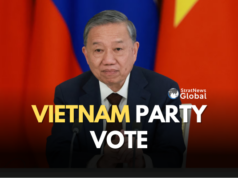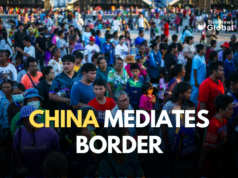With his nomination of China hardliner Marco Rubio for secretary of state, U.S. President-elect Donald Trump has signaled his policy toward Beijing could go beyond his focus on tariffs and trade to a more hawkish stance towards China as the United States’ top strategic rival.
Rubio’s selection on Wednesday came along with other cabinet picks that might upset China, such as Representative Mike Waltz as national security adviser and John Ratcliffe to lead the Central Intelligence Agency (CIA).
Taken together, the choices suggest Trump wants to upend the Biden administration’s approach of “managing competition” with Beijing on issues ranging from support for Taiwan to China’s role in the U.S. fentanyl crisis.
Republicans have criticized the Biden position as too conciliatory.
Rubio “believes in his heart that China is an enemy of the United States,” said David Firestein, a former U.S. diplomat with expertise on China.
“That’s going to color everything he does with respect to China,” said Firestein, adding that Rubio’s belief in existential zero-sum competition with China would “raise the decibel level” of U.S.-China relations.
As secretary of state, Rubio would help carry out, not set, Trump’s foreign policy, but his selection will put a China antagonist with significant foreign policy experience at the
center of his cabinet debates.
Trump has pledged to end China’s most-favored-nation trading status and slap tariffs on Chinese imports in excess of 60% – much higher than those imposed during his first term.
Rubio is almost certain to be confirmed by the U.S. Senate, where he is a senior member of both the foreign relations and intelligence committees.
The staunchly anti-communist Cuban-American’s support for Hong Kong democracy protesters earned him Chinese sanctions in 2020.
It would be the first time China would have active travel restrictions on a U.S. secretary of state, presenting an early test of how Beijing might engage with the new Trump
administration.
For his part, Rubio has been an advocate for U.S. visa sanctions on Chinese officials, and pushed the State Department to bar Hong Kong’s chief executive, John Lee, from traveling to San Francisco for the 2023 APEC summit.
China’s embassy in Washington did not comment on the Rubio sanctions or his nomination, but spokesperson Liu Pengyu said Beijing looked forward to working with the new administration to promote ties “in a stable, healthy and sustainable direction.”
With Reuters inputs
Thirty eight years in journalism, widely travelled, history buff with a preference for Old Monk Rum. Current interest/focus spans China, Technology and Trade. Recent reads: Steven Colls Directorate S and Alexander Frater's Chasing the Monsoon. Netflix/Prime video junkie. Loves animal videos on Facebook. Reluctant tweeter.




